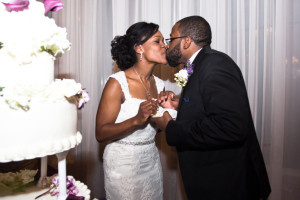>> A little more than 10 years ago, I stood in front of a crowd of my closest friends and was introduced as Mrs. Jennifer Ferris. Our wedding day proceeded without incident, and was full of the love and good feelings you’d expect from such an occasion. But not 24 hours later, I was met with unexpected push-back, in the form of a comment on the internet.
A little more than 10 years ago, I stood in front of a crowd of my closest friends and was introduced as Mrs. Jennifer Ferris. Our wedding day proceeded without incident, and was full of the love and good feelings you’d expect from such an occasion. But not 24 hours later, I was met with unexpected push-back, in the form of a comment on the internet.
“What kind of woman changes her name for a man?” challenged a friend, in response to the announcement of my nuptials.
I was gobsmacked. Despite the fact I consider myself a feminist — and a worldly one at that — I had no idea that friends and strangers would have an opinion about what, for me, was a very personal and private decision.
>>According to the New York Times, more women than ever are keeping their maiden names. Nearly a third of brides are forgoing the practice of changing their name after marriage — almost double the number who did so in the 1980’s and ‘90’s.
This is a welcome trend. I’m in favor of any movement that challenges the status quo and allows women more freedom of choice. What I’m not in favor of is assigning a moral or social value to this choice.
I could give you a million reasons why it was important to me to change my name. Some of them are sad, some practical, and some are based merely on gut feelings. But what’s important is that I had a choice. The crux of feminism in our modern world is not to be prescriptive. It’s about allowing women to decide what’s right for them.
Practically speaking, changing my name was a hassle: I had to get new identification. As a writer, much of my work was under my maiden name. I had to learn how to scrawl a new signature. (True story: I still haven’t figured out how to write a cursive “F” so my married signature is just a scribble.)
Every so often I meet someone new and I see the wheels turn in their head as they realize I have the same last name as my husband and kids. In many ways dropping my maiden name is incongruous with my personality. But the fact is, I relish that. As humans, we are complex creatures. We are the sum of our parts, and we are not defined by a single decision, even one as integral to our identity as changing a name.
Did you change your name when you married? Would you ever? Do you think it’s a backwards concept, or just a simple choice?
>> Jennifer Ferris is the Editorial Director of Women AdvaNCe and a writer from Chapel Hill, North Carolina. You can find her on twitter at @dillettantrum.
Jennifer Ferris is the Editorial Director of Women AdvaNCe and a writer from Chapel Hill, North Carolina. You can find her on twitter at @dillettantrum.
I married last year and I have thought a lot about this issue as well. I haven’t changed my last name, but I may do so if I choose to at some point. Or I may not. My husband doesn’t care one way or the other, and frankly, what other people think is irelevant. The most important aspect for me, as in so many other areas of our lives as feminists and women is that very thing- CHOICE. Mine alone. That is what feminism is all about. Do we wear make-up or not? Who cares? Our CHOICE. Do we love women or men intimately? Our CHOICE. Do we need to not wear wedding rings, since they were originally symbols of ownership, just as aname change was? Our CHOICE. I still have my my maiden name, but it was also assigned to me by a man, my father. t was never my CHOICE. In order for women to be deemed a “true feminists” must we all make up entirely new names? If I choose to share my husband’s name, or some combination of the two, it will MY CHOICE, for the first time. That is what matters.